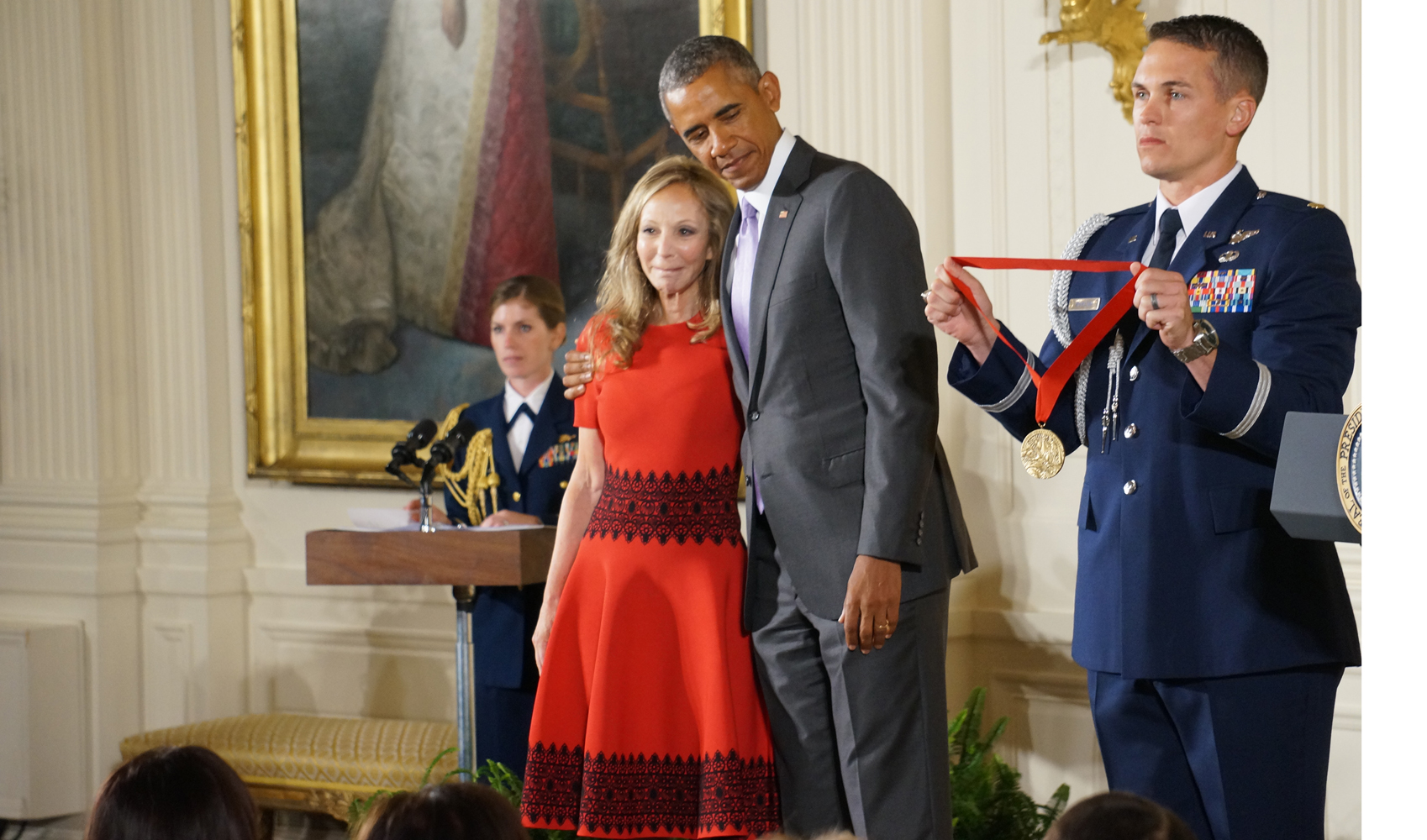Telling the Human Story: White House Honors Those Who Do it Best
In a White House ceremony last Thursday, President Barack Obama honored the 2014 recipients of the National Medal of Arts and the National Humanities Medal. In all, eighteen individuals—artists, singers, actors, writers, three organizations, an architect, a chef, and a historian—were honored for their contributions to, as the president put it, “the great American story…and the human story.” Rebecca Newberger Goldstein—philosopher, novelist, and 2011 Humanist of the Year—was one of ten chosen for the prestigious National Humanities Medal.

Dr. Goldstein and President Obama
President Obama and First Lady Michelle Obama entered the East Room ceremony to thunderous applause from the audience. “I usually do pretty well with artists and scientists,” the president remarked after taking the stage, adding more humbly that the medal ceremony has always been one of his and Michelle’s favorites as it affords the opportunity to recognize artistic brilliance, “while the rest of us look on and feel inadequate.”
The nomination process for the arts and the humanities medals is managed by the National Endowment for the Arts (NEA) and the National Endowment for the Humanities (NEH), both of which are celebrating their fifty-year anniversary this year. As characterized by the White House, nominees are individuals or programs “whose work has deepened the nation’s understanding of the human experience, broadened citizens’ engagement with history and literature, or helped preserve and expand Americans’ access to cultural resources.” Advisory bodies of the NEA and the NEH review nominations each year and provide recommendations to the president, who makes the final selections.
Quoting Emily Dickinson—“Truth is such a rare thing it is delightful to tell it”—Obama characterized the distinguished medal recipients as those with a driving need to create and to express the truth. I spoke to Rebecca Newberger Goldstein after the ceremony and asked what it felt like to be so honored. “Amazing,” she beamed. “Just amazing.” In her 2011 Humanist of the Year acceptance speech, Dr. Goldstein talked about growing up as an intellectually rebellious girl in an Orthodox Jewish community and expressed that studying philosophy made sense because it taught her to question everything. I pointed out the irony that while one of her intellectual heroes, Baruch Spinoza, was excommunicated for his questions and for speaking his truth in calling for a noble, secular ethics, here she was being honored by the President of the United States for a very similar kind of truth-telling. “Yes!” Dr. Goldstein nodded, a twinkle in her eye. “We’ve come a long way, haven’t we?” She also saw the award as a kind of vindication after being criticized by some in the academy for turning from philosophical works to writing novels. (The truth is she does both and does them both very well.) Goldstein also stressed how important the humanist community is to her and noted that while science is rightly championed in the secular movement, the arts and humanities should be as well. Incidentally, Goldstein is the last novelist to be named Humanist of the Year but surely won’t be the last.
In addition to Goldstein, among this year’s humanities winners were chef and author Alice Waters, novelist/screenwriter Larry McMurtry, Pulitzer Prize-winning novelist Jhumpa Lahiri, and architect Everett Fly. National Medal of Arts recipients included theater director Ping Chong, tenor George Shirley, actress Sally Field, composer Meredith Monk, and author Stephen King.
